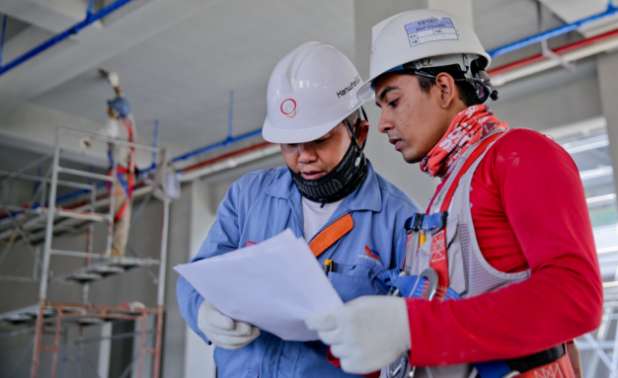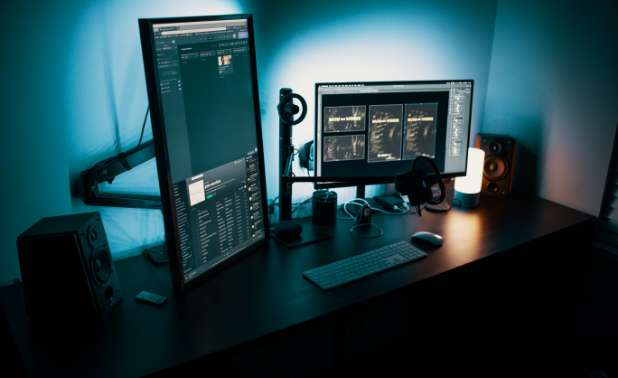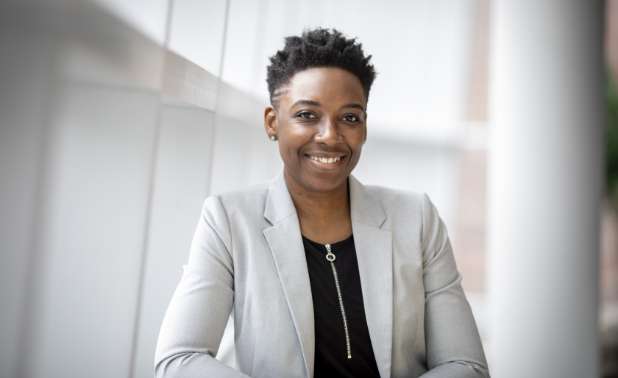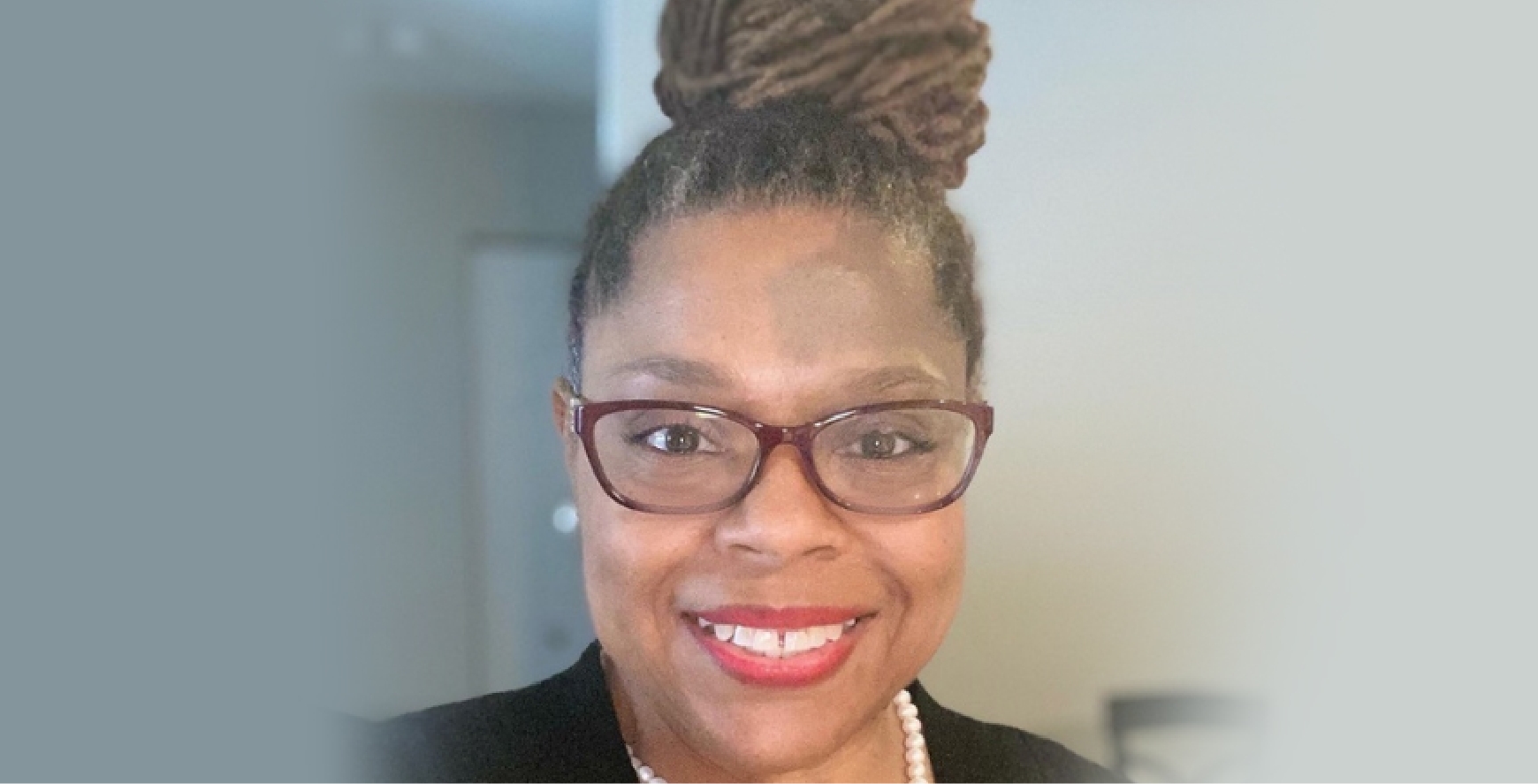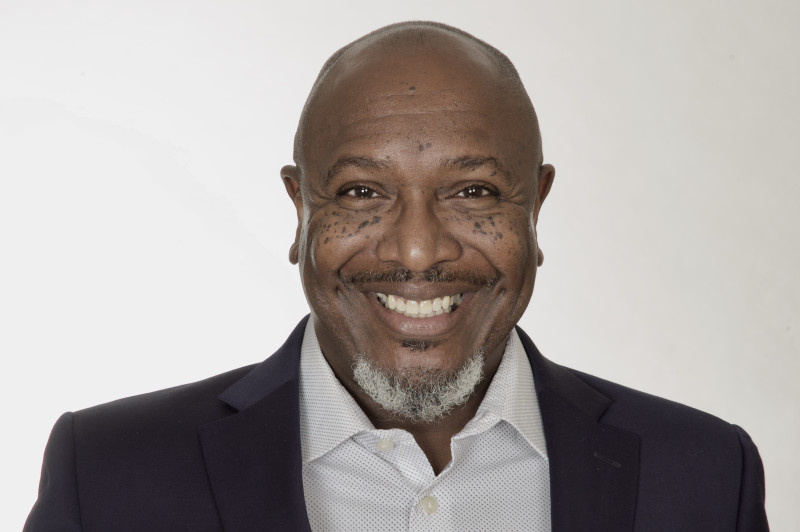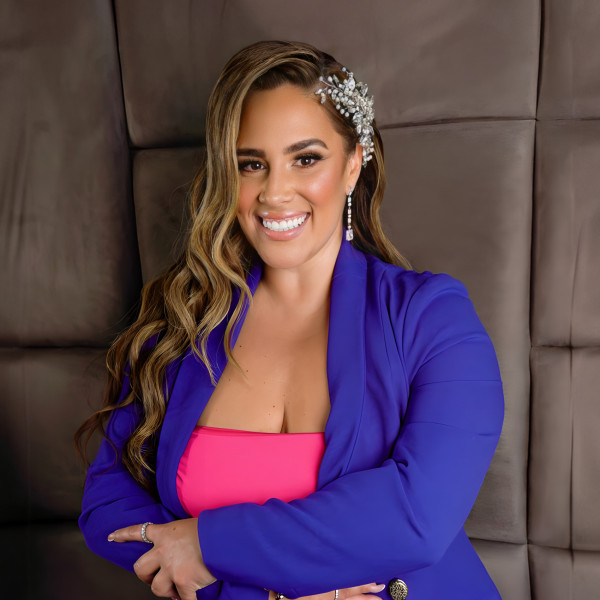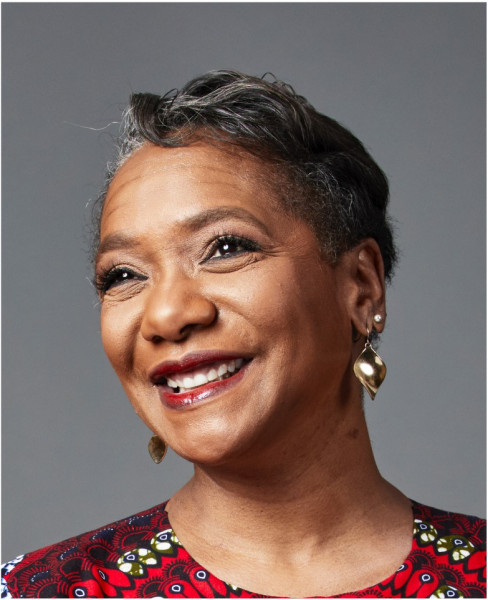Kamela Forbes:
Welcome to But First, People, a podcast brought to you by Pride Global. I’m your host, Kamela Forbes, the global head of diversity, equity, and inclusion here at Pride Global. Along with my colleagues, on this podcast, we’ll dive into everything from diversity, equity, and inclusion to service and staffing in the human capital industry and so much more. Join us as we sit down with industry experts to hear their stories.
Kamela Forbes:
Welcome back to But First, People. For those of you joining us for the first time, we’re so happy that you can be here with us today, because I’m very excited to have as my guest Bridgette Gray from Opportunity@Work. Bridgette is a strategist, operator, and organization builder. She has spent the last 20-plus years helping diverse talent access and benefit from training and employment opportunities—and helping businesses to acquire this talent while influencing DE&I essential to their bottom line. Bridgette, welcome to But First, People. So Bridgette, what song are you going to kick us off with today?
Bridgette Gray:
I’m going to kick us off with Bill Withers’ “Lovely Day.”
Kamela Forbes:
I love that song. All right. I can’t wait to hear her.
Bridgette Gray:
All right, here we go. [Singing.]
Kamela Forbes:
[Singing]
Bridgette Gray:
Thank you.
Kamela Forbes:
We got the backup and everything going on!
Bridgette Gray:
That’s right. I didn’t know I was going to have a backup. I would’ve kept going.
Kamela Forbes:
That’s amazing. That was lovely. Thank you so much for doing—
Bridgette Gray:
You’re welcome.
Kamela Forbes:
That’s a great thing. It’s just all about having fun and being real and being authentic. And I agree with you. I love that song. You start with that tune for the day, the rest should be a lovely day, right?
Bridgette Gray:
That’s right. It absolutely should.
Kamela Forbes:
Well, good. Let’s go ahead and dive right in. I know we have so much to cover today. I’m really excited to delve in and learn a little bit more about the work that you’re doing. Now, I know that you’ve been in the industry of helping young professionals prepare for the workforce for many years, but can you tell our listeners about your career journey and how you got into this line of work—and I guess ultimately what’s your “why,” what drives your passion for this type of work?
Bridgette Gray:
Yeah. It’s not just young people. I think about the fact that I’ve been in this space for a long time, trying to support many people regardless of where they are, regardless of age range, and especially women. So my “why” and my passion comes from women. It comes from the fact that I was a young mom who had so much ambition, but also had this amazing support system of a family—who did not ever fathom that being a young mother didn’t mean you continued on with education and all of those things. And so my “why” every day was when President Clinton signed the welfare reform act in 1996, I wanted to jump into the front lines of helping women to be able to transition their careers, or even help women transition from “welfare”—I put that in air quotes, “welfare” to work, into a career. And so my first job was a career coach—and I spent that time really trying to help women understand what it meant to not be dependent on a system, but to actually create a pathway for themselves. And it was understanding that if those women had the support system that I had? Maybe things would look different, who knows.
Bridgette Gray:
So, my “why” every day is really about career pathways. It’s really about economic mobility. It’s about economic equity. It’s about making sure that women’s voices are really strong, because they are the primary breadwinners—particularly women of color—in their household, making sure that their voices are really strong and they can really determine what their career pipelines and pathways need to look like, and their economic mobility and growth.
Kamela Forbes:
So we recognize right now that we’re living through the “Great Resignation,” or as some like to call it, the “Big Quit,” but regardless, companies are just struggling to find talent. We know that there are more than 70 million STARs—STARs meaning workers who are skilled through alternative routes, that’s the acronym “STAR,” “skilled through alternative routes”—rather than through a bachelor’s degree. Can you share some more information about these STARs and what your company Opportunity@Work is doing to prepare these STARs for the workforce?
Bridgette Gray:
These STARs are coming to the workforce with skills that they’ve learned through, or have attained through, military service, community colleges, through their own work experience, as well as nonprofit workforce-training providers. The way I would describe STARs would be they’re the same person that walked in the door that applied for a job that had a degree. The difference is this person doesn’t have a degree—everything about them is about the skills they’ve acquired, they’ve developed over their years of working. These are people who have been in the workforce for a while. So they’ve attained a lot of skills. The only thing that may be lacking, in an employer’s view, would be the fact that they don’t have a four-year degree. And so if we stripped the degree out, they would qualify for, from an employer’s seat, they would qualify for most of the jobs that employers have.
Bridgette Gray:
And we can break it down into demographics as well. So, 61% of Black workers are STARs, 55% of Hispanic workers are STARs, and 66% of rural workers of all races are STARs. And so when you start thinking about the 70 million people, we know that 30% of people in the U.S. have a degree. So think about the amount of people who are just skilled through some type of training or some type of work experience or life experience. Just think about that. That’s the bulk of the workforce. STARs are ready. They’re ready to go to work today. We just need employers to really reevaluate how they look at their position descriptions and what roles they can remove degrees from to open up more pathways of equitable opportunities for STARs.
Kamela Forbes:
Wow, hearing those stats are impressive. And we hear companies say all the time that they can’t find diverse talent. Well, the stats you just quoted show how much of that talent pool is out there and ready to work, if they would just kind of have a different mindset about how they’re trying to hire and how they’re looking for talent. I know Opportunity@Work recently released their STARs Insights report that reveals that there are millions of Black STARs in particular who have the skills employers seek to fill these in-demand jobs, but these workers are still missing from the talent pipeline. So why do you think that is, Bridgette?
Bridgette Gray:
Yeah. You know, we should dig into that data a little bit too. So there are 17 million Black workers that are active in the U.S. labor market. Of that 17 million Black workers, 11 million are STARs. So 65% of all Black workers are STARs and 7% of the overall workforce. That’s huge, when you think about that. Black STARs have a tendency to live in areas that historically offer very limited economic opportunity and mobility, and more than half of Black STARs work in 25 jobs. And so thinking about this struggle to find a diverse talent pipeline, that’s not because the diverse talent pipeline is not there. It is because the way that they have been seen has been not as someone that can bring the skills that employers have thought about them bringing when they couple that around a degree. So what I mean by that is these workers, the bulk of them don’t have degrees.
Bridgette Gray:
So employers automatically have pushed them outside of their mind, unless it’s a role that doesn’t have great economic advancement in economic mobility. We’ve been having this conversation—I’ve been in this space for over 30 years, we’ve been having the same conversation for over 30 years, which is, “I can’t find talent. I can’t find diverse talent.” Employers have to understand: in order to find diverse talent, you have to change the way you think about sourcing talent, and that sourcing of talent can’t be in your traditional ways. You have to throw those things out the door and start to think: if I really want to get to the DEI in the heart and soul of changing the culture of my organization? Where DEI doesn’t become a second afterthought, it becomes the primary thought? Then you have to change the way you’re sourcing talent. And so this conversation around there’s no, “I’m having a difficult time with diversity,” it’s because of the way you’re sourcing. And you have to think about that.
Kamela Forbes:
What do you think is at the root of employers not being able to kind of see past biases that are in the hiring process to allow them to actually hire the talent that they are, air quotes, “looking for?”
Bridgette Gray:
Yeah, that’s a really good question. And so I think we shouldn’t sugar coat it: there are biases that creep up into HR teams, hiring managers, anyone that’s on the front line of ushering new staff into an organization. There’s a bias that creeps up. And so think about it—the way I think about it is we talk a lot about DEI and making sure that companies are diversifying their teams. One of the conversations I just had recently this morning was about that very thing, which is oftentimes, when people are thinking about who they want to hire and particularly for folks that are in positions of power—and I will actually say sometimes often for white folks that are leading the HR front, the person that is hiring managers—the person you think about oftentimes looks like them. It’s an unconscious thing that comes up.
Bridgette Gray:
People think about proximity to who you know. The thing I know about Black people or people of color that have been in roles of HR or DEI, they think about the entire group of people that could be hired in. It’s not necessarily about the person that looks like me, it’s about who can do a really good job. And so I say all that to say that when this bias shows up, people think about DEI as an afterthought. It’s like, I need to fill these roles. And then I’ve heard people say, “Well, let me just step back and see who’s missing.” Well, when you say who’s missing from the table, are you talking about people of color? Are you talking about women? Are you talking about someone that’s an older worker or a younger worker? If you have to take a step backwards and see who’s missing, then those who’re missing have become an afterthought. They weren’t a part of the original thought about how I should be thinking about hiring people.
Bridgette Gray:
And so the bias is there. I think that even when a degree is the center of how you hire, you automatically have eliminated a ton of people who have skills to do the jobs. But I think bias is strong. We all have biases, but I think bias in hiring has become really, really strong. The other thing that I’ve noticed too, is that even when sometimes companies will think about hiring for skills, there’s another proxy put in and that’s like, “Oh, well, now we need to do an assessment to see whether or not you actually have the skills to do the job.” But the reality is when you think about a college graduate, no one’s doing assessments there. No one’s asking how do you validate the skills of a college graduate? I think a lot of this is because of bias.
Kamela Forbes:
Yeah. I think that’s a really important point you bring up, right? Like, not necessarily because you had a degree necessarily means that you are skilled for that particular job, right? You make that assumption, but the same way, I think it’s about changing mindsets and making assumptions that if somebody actually had on-the-job experience, that they probably came up with the skill sets—or if somebody actually went to a trade school or some other way, and they focused specifically on that skill, that they’re probably even more skilled than somebody that just went to college and might have taken a course in it or something of that nature. So I think that’s really interesting, but let’s talk about—we know that this bias exists, about how that works. Are there programs that are out there, just training courses that they could take to understand that? What does that look like?
Bridgette Gray:
Yeah, so Opportunity@Work, we are a national nonprofit that focuses in this workforce space— goal is to rewire the labor market and really open up more doors for STARs to have equity, mobility, career progression. And so we have product offerings that we have. Our biggest is Stellarworx, which is our skills-based talent matching platform. (Stellarworx. “-worx” is with an “X” as in “x-ray,” on the end.) We build relationships with employers and we build relationships with talent developers, and talent developers invite their STARs to Stellarworx. Employers post positions, and there’s a matching that happens with them. And so we do have relationships and partnerships—our Stellarworx platform is not open access, so those are relationships we’re building—but we start all of that out with a conversation.
Bridgette Gray:
It’s a conversation about how do you currently source your talent? What does your DEI look like? What are you looking to change in your culture of how you hire and how you think about people? And from that point, we start to have conversations about data and some of the roles that they’ve been posting, where can they pull the degree requirements from. And then we talk about if degrees were removed, what are the skills you’re looking for people to actually have, so we can help build those skills out and help people understand what does “skills” in relation to “roles” really look like.
Bridgette Gray:
And so, yes, being a partner with us, but even just having conversations with employers. I sat on a round-table conversation this morning and just making more people aware that skills-based hiring—we’ve always done skills-based hiring in this country, but we’ve done skills-based hiring in relation to also putting degrees as a requirement, right? When you look at position descriptions, they always have a list of skills on there that people need, but the proxy has been, the only way you can get to this job is through a degree. And so we have that conversation very often with employers. And then there’s also our data and insight. So you referenced the report earlier, State of Black STARs report, that’s our data and insight so that we can be a thought leader in the space around skills-based hiring and how that looks. And so, yeah, partnerships, conversations—conversations like this—open those doors. And so we’re always open to anyone that’s wanting to understand more about how they can start to think about rewiring their own hiring process.
Kamela Forbes:
Yeah, it’s super important. I think it’s just one of those things that anybody that’s really dedicated to DE&I and trying to really see the needle move as it relates to that could get to the root of some of the unconscious bias issues by addressing a lot of what you all address—and breaking down the actual skill requirements out of the job descriptions, what do people actually really need versus what’s the nice to have, and what does it take to actually do the job. That opens up so many more talent pools to these employers that are looking for more diverse pools of talent. So I think that’s remarkable work that you’re doing. What advice would you give to folks who might be still just a little bit hesitant about hiring STARs?
Bridgette Gray:
The advice I would give, and I don’t claim to be an economist or a labor historian, but what I will say is if people were to go back and start to think about 30, 40, 50 years ago, there was dignity in apprenticeship models. There was dignity in work-based learning. There was dignity for people who did not go to college, but they got a trade. And we talk about that all the time, like a trade. This is what people get, right? And there have been so many thousands of people that have completely changed their own financial trajectory by going through a trade. And businesses honored those and really had jobs that paid really well so people could take care of their families. And so what I would say is let’s not get away from that.
Bridgette Gray:
There are still roles that require degree. Opportunity@work is not anti-college at all. And so there are roles that I think about that are license specific: an attorney, a engineer, or a teacher, right? Those, you need a degree in order to do that work, but for a lot of jobs, you don’t need a degree to do the job. And so I would ask employers to think about STARs the same way they thought and talked about how hard their grandparent worked and was able to go out here and get this job without a degree and wants to have a really, really good life. It’s no different from that.
Bridgette Gray:
Speaking to unconscious bias, I think that when people think about STARs from their deficits versus their assets, that’s a bias that’s creeping in. For instance, if someone is hiring a single mom, they don’t necessarily know—they can make a lot of assumptions if she has children, but the question in their mind may be, "Well, if she has kids, how is she going to get to work? She’s a single mom. What does she need? What type of supports?" You’ve already put in your mind a deficit about this individual versus seeing that this is a mother who has to manage a household, who has to move people here and there, who can lead—because she’s absolutely leading. She’s financially astute because she’s managing her household. And so think about all the skill set she has as a mother, as a woman, as someone that’s navigating this space, versus thinking about, “What risk is she going to cause me in hiring her?”
Bridgette Gray:
And so I think that those biases are not going to go anywhere. They’re going to stay there, but people have to think about people from their assets and not their deficits. Every single person across this country has deficits, everyone. Whether you went to college or not, whether you are a CEO of a company, whether you’re a frontline worker—but the way we talk about people’s deficits are our classes. Right? They’re very different. And so I think that as long as employers can understand when a bias is creeping up for them, recognize it, admit it, and then change it, then that is the feedback and advice I would give to employers. STARs are amazing talents. And you know what? The other thing I would tell them—guess who else are STARs? Bill Gates is a STAR. Mark Zuckerberg is a STAR. Steve Jobs was a STAR. None of them had college degrees, but they had access, they had opportunity, and they had knowledge of how to get access and opportunity. That can be the difference. And their social capital was really great.
Kamela Forbes:
Yeah. That’s, I mean, it’s such a great way to put it, Bridgette. I think it’s really just about shifting that mindset, right? Getting those positive images of people who were skilled through alternative routes, just like everybody else is coming through the Opportunity@Works program. And if you start thinking that you will build, literally, your next STAR, tap into that talent pool—appreciate them for, like you said, their assets versus their deficits—and let’s go ahead and put them into the labor force and get them to work and get them on the correct career pathways toward economic mobility. And I think the world will be a better place for it.
Bridgette Gray:
I agree. Just one thing, you know, since I’ve been at Opportunity@Work since October, I’ve had a lot of interviews, and what I’ve found fascinating are the number of people that are interviewing me, or that are having conversations, who are leading global community development and other things. They will openly admit they’re a STAR. They’ll say to me, "You know what, I’m a STAR." And there have been times, I just spoke to an SVP of global community engagement recently. And she was just like, "You know what, I’m a STAR. And I’ve never told anybody this before, because it’s not something…succeed.”
Bridgette Gray:
If you didn’t go to college and it’s in your face all the time when you can’t get promotions because you’ve been in a role for 20 years doing a role and a new role comes up and they’ll say, "Well, you have to have a degree." But you’ve been doing this role, or you’ve been doing a role that’s adjacent to that one. So that comes up a lot. And so I think that’s, again, a reason why I think STAR nomenclature is really important, because people can now feel comfortable about—I have the skills, I don’t necessarily have the degree, and I have a safe space to be able to say, I have these skills, to recognize them, to understand them, and to also when I’m going through interviews, explain what that means in lieu of having a degree. But the amount of people, particularly women, that have openly said, "I am a STAR. And I love the fact that you all are talking about this like this," has been fascinating to me.
Kamela Forbes:
Ah, it’s all about getting that marketing push behind it and for us to see how important that is and to see how successful it can be and, you know, how they end up leading companies and doing a great job at it. And it’s just about that opportunity. And I think that’s the key word. Well, as we wrap up here, Bridgette, I mean, this has been a fascinating conversation, just super educational about the tactical things that people could do to try to mitigate unconscious bias. We all know it exists, but how do you recognize it, acknowledge it, and then move to shifting that mindset to looking at it from a different point of view. And based on the impact that you have made over the years of your work across different talent pools, what would you say you would want your legacy to be?
Bridgette Gray:
Wow, that’s a really good question. When you think in terms of it, and this is not a morbid space, so I want to be really clear, when you think about a person’s tombstone, they have their date of birth, and then there’s their year of transition. And then there’s a dash in the middle. And I always think about my dash, like, what did I do with my dash? And for me, what I want to do with my dash, which would be my legacy, is to always know that I made some type of impact somewhere. I got into this work all about impact. And the reason why is because I realized the impact that happened with me just from having an amazing family and amazing family support system. And I jumped into this work all because of women who the country was saying, you need to transition from “welfare,” again in air quotes, to work.
Bridgette Gray:
And I jumped into that work because I wanted to help. And I realized quickly that in that space, this wasn’t written in a way that was going to help women at all. So I had to try to figure out, how do I bring some impact to this conversation for women? How do I bring some impact into this training for women? How do I bring impact to young people? And so if I can leave this space and know that I have helped thousands of people get to the career path that they were looking for, and they’ve purchased homes, and they have what people deem as an American dream, that they can take care of their families, they can make decisions about what schools their children go to versus being forced into a specific school district—everything to me is about impact. And I’ve seen it happen.
Bridgette Gray:
I used to be a deputy director at Year Up where I was—18-to-24-year olds I was working with and advisees, and my advisees still come back today to tell me, “I remember this one thing you said to me and it stuck with me.” And to watch their career progression when they were between 18 and 24, and now they’re 30 and 35 and purchase homes and have a quality of life that hasn’t been dictated to them, that they’ve been able to dictate for themselves. That feels really, really good to know that you impacted that space.
Bridgette Gray:
And the amount of women that have worked on my teams, that I’ve been able to show up: be your authentic self, come here, work here, be on this team. I can support you. I can help you. I can help you grow. And then to watch those women grow into senior directors and VPs and senior VPs like, okay, they were on my team, I developed them. I had a part in that. That is so much about legacy to me and what you leave. And so when people mention Bridgette Gray, I hope they will mention that Bridgette impacted my life regardless of what that impact looks like, that there was some type of impact.
Kamela Forbes:
Well, I can tell you this conversation has impacted my life. And so I thank you for that!
Bridgette Gray:
You’re welcome!
Kamela Forbes:
It’s been a lovely conversation, which means that it’ll be a lovely day, the same way we started out today. And I can’t thank you enough for joining us, for sharing your insights, your knowledge, your passion, and ultimately some very tactical ways that we can work to mitigate these biases and to ultimately get the right talent in the right jobs. And so thank you again, Bridgette. It was great chatting with you, and we look forward to all of the work that we at Pride Global will continue to do with Opportunity@Works.
Kamela Forbes:
We appreciate you sharing your stories and your experiences with us today. If anybody has questions for Bridgette or myself, please feel free to tweet us at Pride Global with the hashtag, but first people, or you can email us at butfirstpeople@prideglobal.com. But of course, please don’t forget to like, share, rate and subscribe to the podcast. Thanks again. And we’ll be seeing you real soon.




